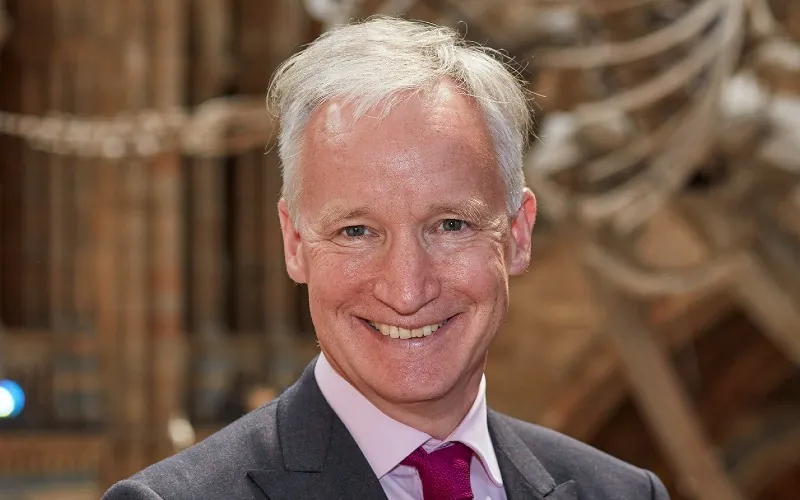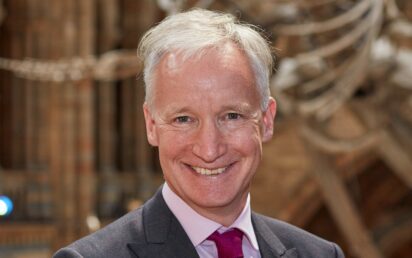Alan Turing Institute chair Dr Doug Gurr has dismissed a series of whistleblower allegations that plunged the UK’s national AI body into crisis earlier this year.
Gurr has insisted that there is “no substance” to the claims following an independent investigation.
In an interview with the BBC, he said that all concerns raised by staff had been reviewed by a third-party investigator, which found no evidence to support accusations of misconduct or mismanagement.
“I fully sympathise that going through any transition is always challenging,” he said.
“It’s been challenging for a lot of people and a number of concerns have been raised.
“Every single one of those has been independently investigated and we’ve not found any substance.”
The comments mark the first time the chair has spoken publicly since whistleblowers accused the Institute’s leadership of misusing public funds, presiding over a toxic internal culture and failing to deliver on its mission.
The allegations prompted the then-Technology Secretary Peter Kyle to threaten withdrawal of up to £100 million in government funding.
While Gurr said he was confident in the Institute’s direction and leadership, his reassurances follow a period of turmoil that has seen an exodus of senior figures, internal dissent and an investigation by the Charity Commission.
A crisis years in the making
The controversy first surfaced publicly in August, when it was revealed that multiple whistleblowers had accused senior management of financial mismanagement and toxic leadership.
One source who spoke to BusinessCloud described the organisation as being “in a mess” and “run by ego”, while adding that funds had been diverted away from scientific research toward consultancy-style contracts and politically driven projects.
Staff discontent had reportedly been brewing for months following the introduction of Turing 2.0 – a sweeping restructuring strategy aimed at refocusing the Institute’s research priorities on national security, defence and economic growth.
The shift led to the closure or transfer of around a quarter of its 100+ research projects, many of which were focused on social impact areas such as health inequalities, online safety and digital ethics.
Evidence of internal letters of no confidence were also uncovered, as well as reports of high staff turnover and growing tensions between management and researchers.
Departures and investigations
By September, the crisis had deepened, with chief executive Jean Innes resigning less than two years into her tenure.
Innes’ departure followed the earlier exits of three senior directors, the CTO and several prominent researchers.
At the time, a source told BusinessCloud the organisation was “a charade”, adding that it is “a mess behind the scenes”.
The Charity Commission subsequently confirmed that it was examining complaints about the Institute’s governance and use of funds.
Gurr declined to comment on whether he would step down should the regulator identify failings, instead emphasising his pride in the organisation’s achievements and describing himself as “privileged” to lead it.
“I love this job,” he said. “We have fantastic talent and unbelievable data sets. Let’s get in and focus on the areas that really matter.”
‘Ego, pathetic, a mess’: Alan Turing Institute slammed as CEO resigns
The chair’s defence
Gurr, who previously served as Amazon UK’s country manager and has held senior roles at Asda and the Natural History Museum, was appointed chair in 2022 with a mandate to modernise the Institute’s leadership and strengthen ties between academia, government and industry.
He acknowledged to the BBC that the past year had been “tough” for staff but claimed that the Institute is now “match-fit” and better positioned for impact.
He aligned himself with the government’s push to direct more AI research into defence, security and critical infrastructure protection, while reinforcing the Institute’s commitment to other core themes such as environmental sustainability, health research and transport emissions reduction.
The Turing Institute currently leads a number of ongoing projects, including work to improve weather forecasting accuracy, build digital twins of the human heart for cardiac research and develop AI models to reduce carbon emissions across the UK’s transport networks.
“The world feels like it’s become a much more dangerous place over the last couple of years,” Gurr continued.
“Technology and data are playing an increasingly critical role in any form of conflict or national resilience. The Turing has had a long track record of working in these spaces.”
He did not, however, disclose the identity of the third-party body that carried out the investigation into staff complaints.
Uncertain path forward
Gurr insists that the Institute has weathered the storm, but insiders remain unconvinced.
Several whistleblowers still employed by the organisation told the BBC that its “reputation is in tatters” and that the leadership’s reassurances ring hollow.
“This is not a new chapter for the Turing,” they said. “It is the same words under a new heading.”
Meanwhile, a source BusinessCloud spoke to backed this up when they said: “Every single day with these people it’s the same.”
The Alan Turing Institute: behind the unrest at the AI powerhouse


